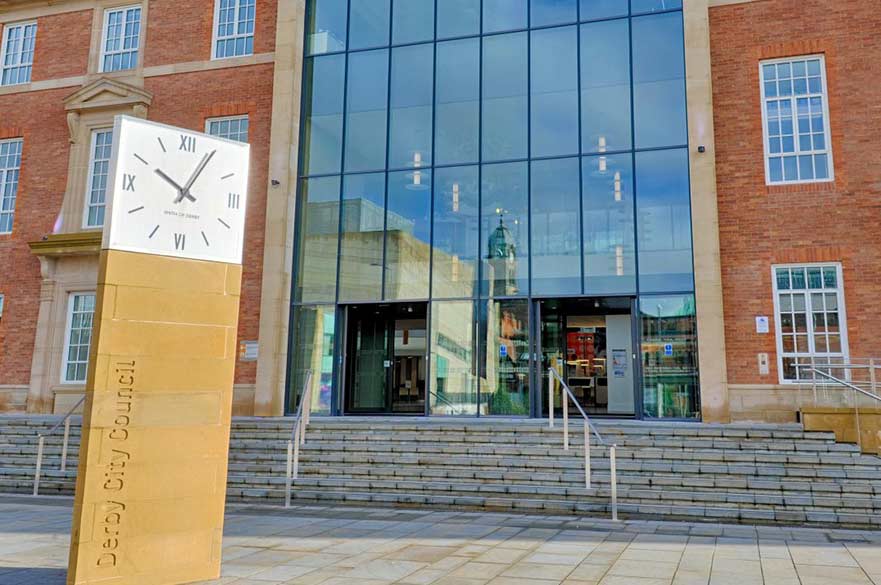The full impact on Derby of 13 years of Government austerity and under-funding of councils across the country has been set out in Derby City Council’s latest financial update.
Since 2010/11, Derby City Council has made more than £225 million in cuts as funding from central Government has declined. Further shortfalls in funding will erode services even more.
While the Council has raised revenue via Council Tax and business rates, these increases haven’t kept pace with increasing levels of demand and more recently, the shock of high interest rates and inflation.
In 2010/11, 66% of the Council’s income came from Government grants, with Council Tax providing a further 34%. Today that position has flipped with 37% of income coming from Government grants, and 63% from Council Tax and Business Rates.
A report going to Cabinet in October, outlines current progress on the Medium Term Financial Strategy, which is how the Council plans how much income it expects to receive and the amount of expenditure it expects to incur. Emerging pressures on the budget include the annual pay award to staff, which is set nationally, increasing levels of homelessness fuelled by the cost of living, and more demand for both adult and children’s social care.
Derby City Council is not alone. These issues are affecting the entire local government sector. Birmingham City Council, the largest local authority in Europe, recently joined councils in Thurrock, Slough, Croydon and Woking in issuing a Section 114 notice, meaning it can no longer deliver a balanced budget and requires Government intervention in managing its finances. Local government officials say at least 26 councils across Britain could be at risk of doing the same in the next two years.
Councillor Baggy Shanker, Leader of Derby City Council, said:
It is beyond question that due to years of cash starvation by successive Conservative Governments, local government has reached crisis point. For years we have been dependent on one-year funding settlements, plus ring-fenced funding for projects, making it impossible to plan for the longer term.
The Government’s solution is for councils to be responsible for raising more of their own income. But this approach doesn’t work in a city like Derby where most of our households are Band A-C properties and will never raise enough money to be able to adequately fund public services.
I have written a letter to Michael Gove, Secretary of State for Levelling Up, Housing and Communities, asking the Government to recognise the situation affecting local government and intervene. I’ve outlined how Derby is playing its part towards the Government’s levelling up agenda, but this could be at risk due to economic challenges and increasing demand.
The Government must change the way it funds local government services for our citizens, who need and deserve to have a clean, safe and welcoming city to live in, and have tasked us with delivering that. If Derby City Council can no longer provide the services, people won’t stop needing them. Who picks up the pieces then?
The Cabinet report states that due to the increasing pressures on the budget, Derby’s forecasted £8.5 million budget gap for 2024/25 is now actually around £14.5 million without any additional Government funding to mitigate this.
In addition, at the end of the first quarter of the financial year, the Council was forecasting an overspend of £6 million by the end of 2023/2024. While this is better than at Quarter 1 in 2022, the Council needs to take measures to avoid drawing further on its Budget Risk Reserve, which would then be reduced to zero by April 2024.
In the face of these challenges the Council continues to take measures to reduce its in-year spend, including strict spending controls in place for over a year and a freeze on all but essential recruitment. It is also taking steps to reform services to make them more cost effective, including leasing out areas of the Council House to other public sector organisations to improve partnership working, and introducing Artificial Intelligence to assist in meeting service demands.
Councillor Shanker added:
No one underestimates the challenge we are facing. Our diminishing useable reserves, which the previous administration relied upon to plug the gap for far too long, are of particular concern and our future plans include building them back up.
We are focused on doing the best for the people of Derby with whatever means we have. We are a strong Council, taking every step to keep us on a stable financial footing, and remain ambitious for our city.
You can watch the Cabinet meeting live on the Derby City Council YouTube channel from 4pm on Wednesday 11 October.
